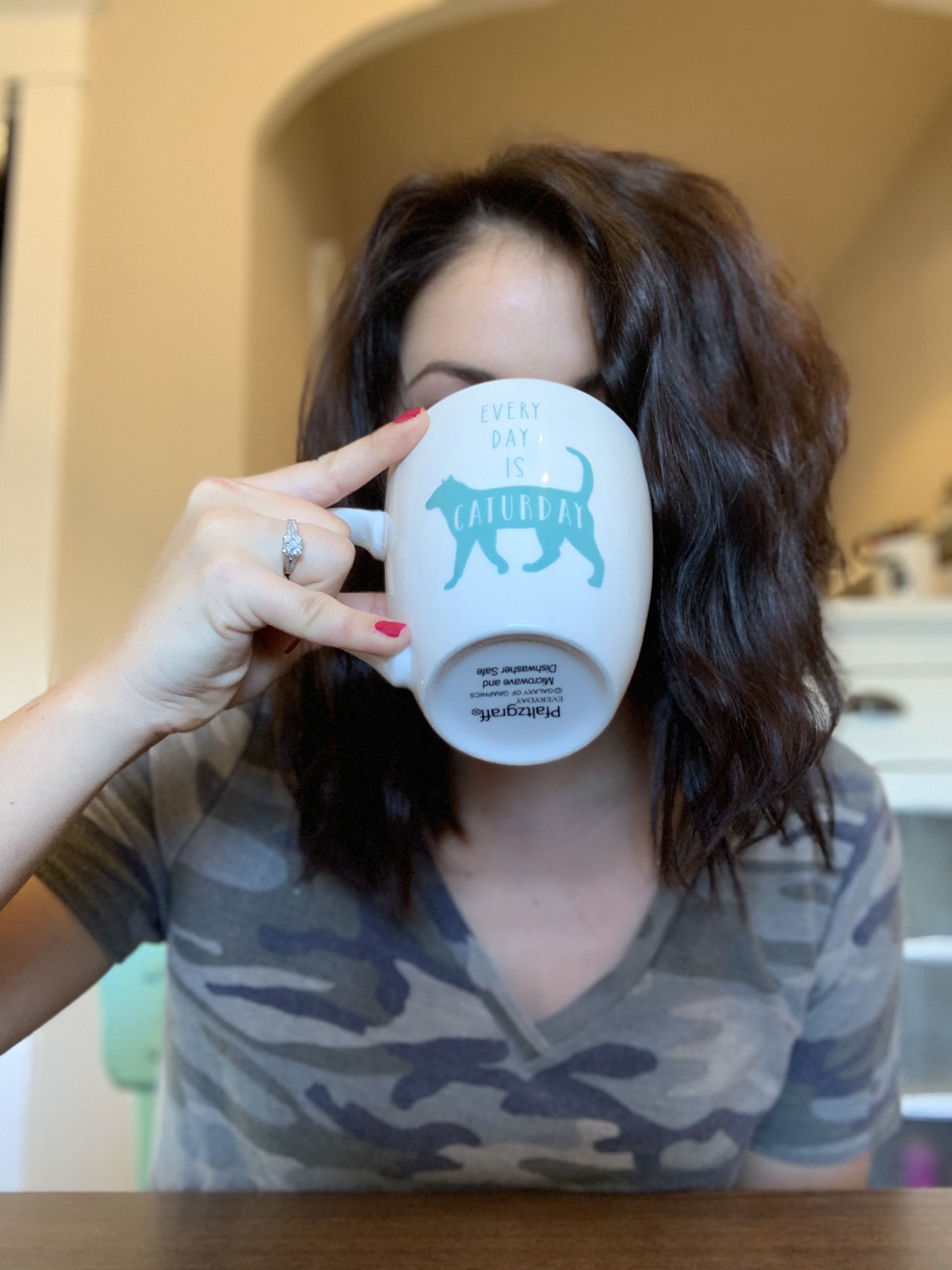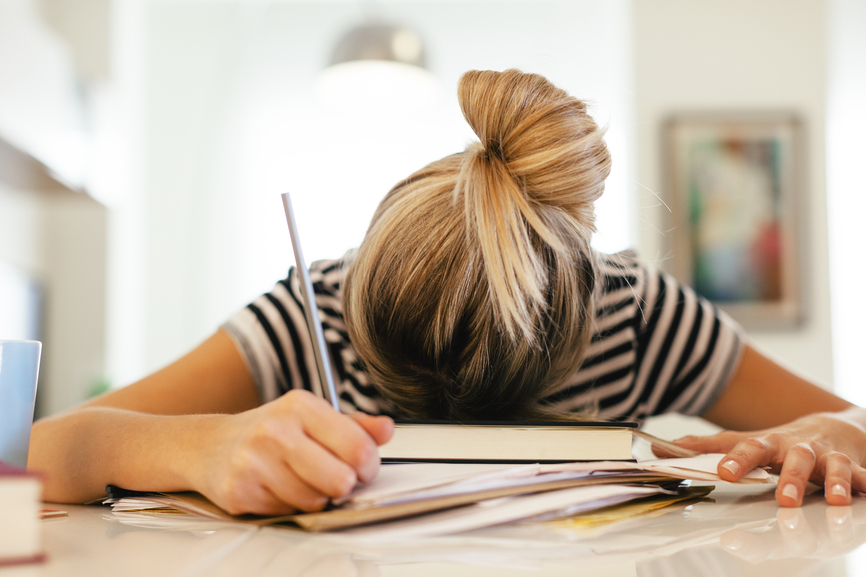Sleep is one of our basic human physiological needs (American Sleep Association). Despite this, we live in a time where we have to be told to sleep more and how to sleep better. Over 1/3rd of adults are getting less than the recommended 7-9 hours of sleep per night. The CDC even labeled sleep deprivation as a public health epidemic, yikes! Sad as this is, it comes almost inevitably with our culture’s overall view of sleep as something for the weak, a luxury and something to put at the bottom of our ever-growing priority list.
To occupational therapy practitioners, such as myself, sleep is a prerequisite to engagement in all daily activities. This is how and to what extent you are able to participate in daily tasks that are meaningful or important to you. Think of all of those things that occupy your time such as getting up and getting ready for the day, feeding your cats, making coffee, scheduling appointments, driving, working, making dinner, taking your dog for a walk, parenting, developing and maintaining healthy relationships, playing sports and anything else you may do from the moment you wake up to the moment you go to sleep.
Yes, we care about all that you do from the moment you wake up to the moment you go to sleep, but we also care about the quality and quantity of the time you spend asleep too. You know, that little and overlooked occupation called sleep? We all NEED sleep in order to do all of the fun, busy and even stressful things that make up our day.
Occupational therapy practitioners see a person containing 6 components that work together to allow us to do things including cognitive, physical, sensory, psychological, physiological and spiritual health. If just one of these areas is even mildly disrupted, it can devastate that person’s ability to complete activities in a successful and satisfying way.
I mean, you KNOW when you didn’t get enough sleep, right? You feel off, groggy, irritable and blah. You adapt by making that extra cup of coffee or getting the extra shot of espresso. Do you ever wonder why your whole system just feels “off” when you haven’t gotten enough quality sleep? Do you even realize that it is lack of sleep that’s causing you to feel “off”? Let’s take a look at the bigger picture.
Cognitive Impact
Cognition includes SO many different complex processes that you use daily and with every single thing you do. Cognition includes things like memory, attention, decision making, communication skills, planning, emotional regulation and more. As you might imagine, having even a mild problem in cognitive functioning can interrupt any and every aspect of your ability to do things. Okay, so ever heard of sleep deprivation-induced cognitive decline? Yep. It’s that feeling of waking up feeling so groggy, of forgetting to check if you turned off the hair straightener before you left the house, of accidentally running a red light, of falling asleep at work, of working slower and harder, of making mistakes, of indulging in things that may not be in your best interest ETC-you catch my drift. Sleep deprivation has been shown to reduce productivity, energy, motivation, problem-solving capabilities (American Academy of Sleep Medicine) and increase chances that one will fail to carry out intended activities. In fact, $411 billion dollars of productivity is lost annually due to insufficient sleep in America.
Physical Impact
Could sleep be impacting your physical health too? YES. Good sleep (remember, that’s 7-9 hours of quality sleep each night for adults) has been shown to increase both the speed and accuracy of motor skills. I don’t know about you, but I appreciate speedy and accurate physical functioning. Whether you’re driving, running, writing a paper, working on the computer, performing heart surgery, or working in some sort of manual labor job, those motor skills need to be on point. Really, with anything we do. Studies also show that good sleep increases the ability that you will be able to learn new motor skills. Think about that one…if you’re not getting enough sleep, how well are you really able to learn?! Both cognitively and physically.
Sensory Impact
What the heck is “sensory impact” and how does it relate to sleep? Let’s think about the 5 senses: vision, smell, sound, taste and touch. Okay let’s also add two more sensory systems that you may not have thought about: proprioception (ability to sense where your body is in space) and vestibular (sense of balance essentially). How we take in ALL of this information about the world at once is called sensory processing. Our brains use and synthesize all of the sensations to try to make sense of the situation, filter out unimportant information and allow us to respond appropriately. Without the ability to process and filter and respond, our brains are on constant alert trying to attend to everything at every moment which ultimately leads us to not be able to attend to anything, really. For example, when we’re at a cross-walk we rely on our sense of sight to see when the light signals for us to walk. We rely on our ability to hear in case there is a car coming or biker riding up behind us ringing their bell. We rely on our ability to sense where our body is so that our brain can tell us how and where to step and we especially rely on our balance so that we do not trip or fall over in the middle of the street. We use our sensory system to tell us how hard and where we have to hold and press on the pencil for it to write without breaking the tip. We use our senses to tell us how lightly or harshly we have to tip the coffee thermos in order to drink it without spilling it (guilty of frequent spillage). And you probably spill too, especially if you’re sleep deprived. Sleep deprivation leads to impaired sensory perceptions, visual disturbances or illusions, altered pain responses and reduced response to auditory stimuli. No wonder there are more auto-accidents and work injuries when sleep deprivation is involved.
Psychological Impact
According to the National Alliance on Mental Illness (NAMI), “More than half of insomnia cases are related to depression, anxiety or psychological stress” highlighting the connection of mental illness to poor sleep. NAMI also states that poor sleep has a significantly negative impact on mental illness symptoms. They even go so far as to say that sleep problems alone can decrease effectiveness of interventions. That means you could be seeking help in various ways without seeing any mental health benefits. You’re listening to what your therapist tells you, doing things that you know you should be doing, scanning all the self-care and self-help books and articles searching for more strategies yet…you’re just not seeing or making progress. Why are you still so stressed or sad or unfulfilled? Maybe it’s because you are not sleeping well. Poor sleep leads to worsening mental health and worsening mental health is linked to poor sleep; it’s a vicious cycle, friends.
Spiritual Impact
There is not MUCH out there about sleep’s influence on spiritual health. One study found that dreams can provide spiritual inspiration. So, if we’re not getting sleep deep enough to achieve that dream-state (REM), we can be missing out on that spiritual inspiration. We can also miss out on the formation of creative solutions and novel problem-solving abilities. Lastly, one study found a correlation between spirituality, hope and better sleep quality. I don’t know about you but I sure don’t want to miss the opportunity for new and creative solutions, hope or spiritual inspiration in my life.
Physiological Impact
Last but absolutely NOT least! Like stated above, sleep is one of our most basic physiological needs. That means it’s one of the factors that underpins our ability to function! Our immune systems can be altered by four main physiological factors including exercise, stress, sleep and adequate nutrition. Sleep deprivation has been further linked to serious health conditions such as cardiovascular disease, stroke, COPD, asthma, diabetes, hypertension, depression, anxiety and substance abuse to name a few. To add to THAT, sleep deprivation itself can cause an increase in cortisol (the stress hormone) which then demands extra work from the heart causing heart strain. ALSO, poor sleep disrupts appetite hormones causing us to have increased cravings, reduced feelings of fullness, increased appetite and that dreaded weight gain.
Conclusion
Unfortunately we, as a society, are used to functioning under these “lack of sleep” conditions and we may have decided that we’ve just adapted to this life. Underlying it all, the outline above (sleep from an OT lens) is how we’re harming our body and how we’re actually not functioning to our fullest if we don’t get enough sleep. Occupational therapy practitioners, like myself, would like to see this change. We’d like to see healthy and calming sleep environments, good sleep hygiene routines and genuine focus on getting that restful sleep in order to proceed with the following days as fully and presently as possible. No one likes to talk to/work with/be with someone who is functioning on auto-pilot. And no one likes to feel that way either.
What I’m really saying here is that we need to improve our sleep health because inadequate sleep impacts EVERY piece of our beings and this impacts our ability to participate in life!


